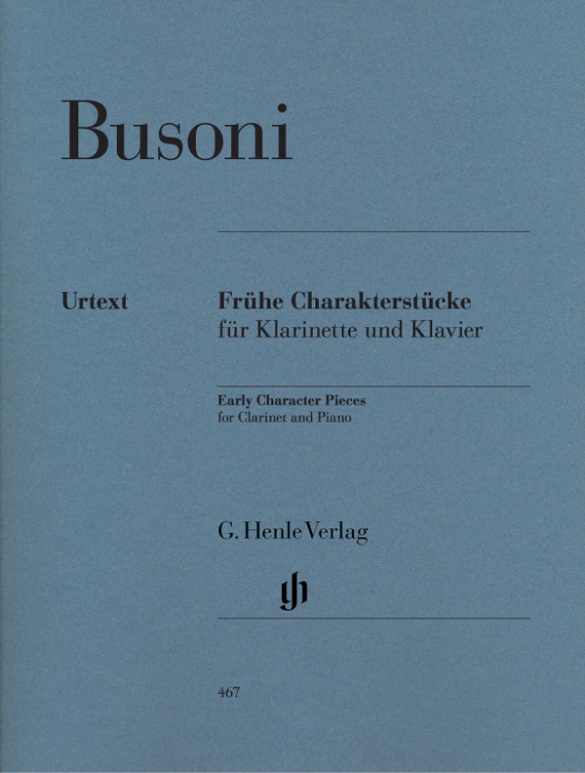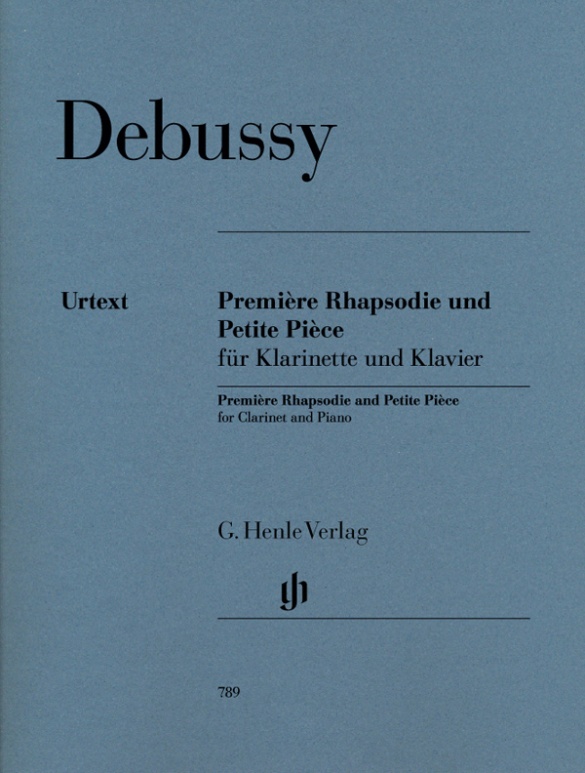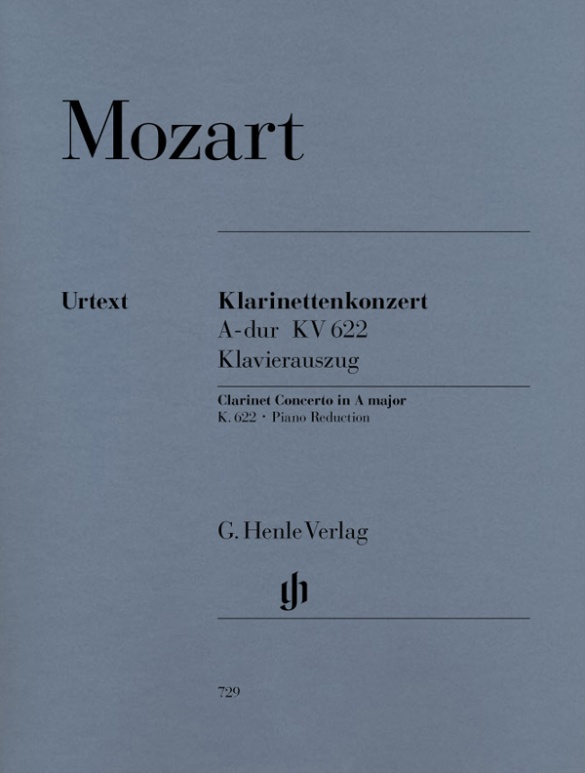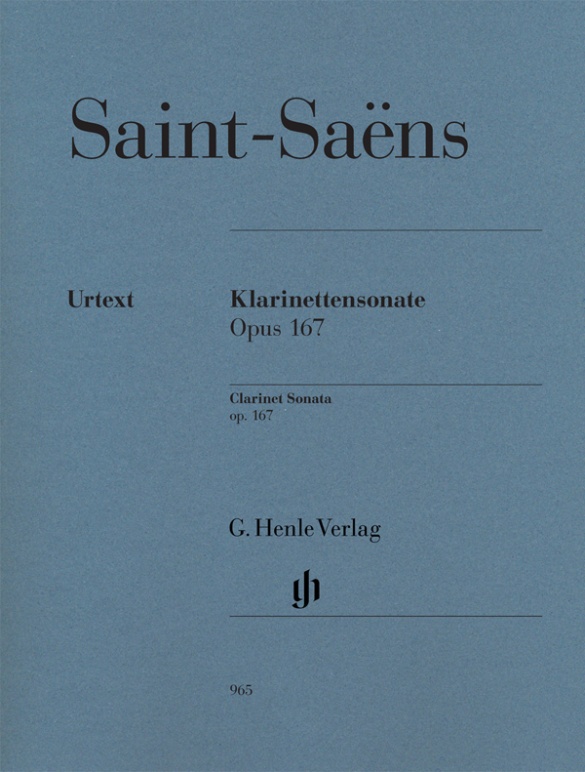Ferruccio Busoni
Early Character Pieces for Clarinet and Piano (First Edition)
Busoni’s father was a clarinettist who had published a clarinet method in 1883; his mother was a pianist. Thus it is no coincidence that child prodigy Ferruccio Busoni, born in 1866, composed a series of works for clarinet, usually with piano accompaniment, between 1877 and 1879. They include the Early Character Pieces for clarinet and piano, published in this Henle Urtext edition for the first time. Our edition is based on the autograph, which Busoni probably wrote with the aid of his parents. Pianist and pedagogue Klaus Schilde supplies the fingerings.
内容/詳細
作曲家について
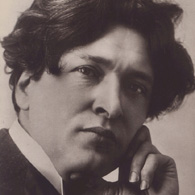
Ferruccio Busoni
Important composer, pianist, conductor, and music essayist who advocated for classicality and classicism in a mode of thought aligned with progress. In addition, he adapted and transcribed quite a few works, especially those of Johann Sebastian Bach.
| 1866 | Born in Empoli on April 1, the son of a clarinetist and a pianist. His parents foster his musical education. Prodigy: early career as a pianist. |
| 1887 | String Quartet in D minor, Op. 26. |
| from 1888 | Piano instructor in Helsinki, Moscow, and Boston. |
| 1890 | Participates in the piano and composition categories of the Rubinstein Competition in St. Petersburg with his Sonata No. 1 in E minor, for violin and piano, Op. 29; the Two Pieces for Piano, Op. 30a; and Konzertstück for Piano and Orchestra, Op. 31a. This last piece wins the first prize in composition. |
| 1894 | Moves to Berlin. |
| 1897/1904 | Comedy Overture, Op. 38. |
| 1903–04 | Concerto, Op. 39, for piano, orchestra, and male choir in five movements with a concluding choral movement. |
| 1907 | Essay: “Sketch of a New Esthetic of Music.” |
| 1909 | “Berceuse élégiaque,” Op. 42. |
| 1909–10 | Second tour of America. |
| 1910 | “Fantasia contrappuntistica” for piano as an attempt to find a conclusion for Bach’s “Art of Fugue.” |
| 1912 | Performance in Hamburg of his opera “Die Brautwahl” (“The Bridal Choice”). |
| 1913 | Director of the Liceo Musicale in Bologna. |
| 1915 | Rondò arlecchinesco, Op. 46. |
| 1915–20 | Living in Zurich, due to the war. |
| 1917 | Performances in Zurich of his operas “Turandot” and “Arlecchino”; they draw upon the Commedia dell’arte. |
| 1920 | Director of a master class at the Prussian Arts Academy in Berlin. Tanzwalzer, Op. 53.1922 Essay “On the Unity of Music.” |
| 1924 | Dies in Berlin on July 27. |
| 1925 | Posthumous performance in Dresden of his opera “Doktor Faust.” |
校訂者や運指担当者について
Georg Meerwein (校訂)
Prof. Georg Meerwein, born 1932 in Bickensohl am Kaiserstuhl, first studied Protestant church music at the Badische Musikhochschule in Karlsruhe, but then changed over to orchestral music with oboe as his main subject at the Staatliche Hochschule für Musik in Freiburg.
Meerwein performed as a soloist all over the world for several decades and was also a visiting professor at universities in Europe and Latin America, including at the Universidade Federal da Bahia Brazil from 1958 to 1961. Between 1989 and 2009 he gave master-classes in many South American countries. From 1962 to 1996 he was solo oboist and cor anglais player with the Bamberg Symphony Orchestra. As well as numerous radio and television appearances, Meerwein has, amongst other things, also made a recording of Mozart’s Piano Quintet K. 452 with Ingrid Haebler for Philips. He died on 25 December 2016.

Klaus Schilde (運指)
Prof. Klaus Schilde, born in 1926, spent his childhood in Dresden. There he was greatly influenced by Walter Engel, who taught him the piano (Kodaly method), composition and violin. From 1946–1948 he studied at the music conservatory in Leipzig with Hugo Steurer. After moving to the west in 1952 he studied with Walter Gieseking and Edwin Fischer, as well as with Marguerite Long, Lucette Descaves and Nadia Boulanger in Paris.
Schilde won numerous prizes. From 1947 onwards he gave concerts as a soloist and chamber musician on almost every single continent with renowned orchestras. He taught at the music conservatories in East Berlin Detmold, West Berlin, Munich, Tokyo (Geidai) and Weimar. From 1988–1991 he was President of the Staatliche Hochschule für Musik und Theater in Munich, where he also taught for decades as a professor. There are numerous radio and television broadcasts with Klaus Schilde as well as CD recordings. Schilde has contributed fingerings to almost 100 Henle Urtext editions.
Prof. Klaus Schilde passed away on 10 December, 2020.
製品安全に関する情報

G. Henle Verlag
製品の製造元に関する情報はこちらでご覧いただけます。G. Henle Verlag
Forstenrieder Allee 122
81476 München
info@henle.de
www.henle.com
おすすめ
autogenerated_cross_selling
このタイトルを含む他の版
このタイトルを含む他の版


